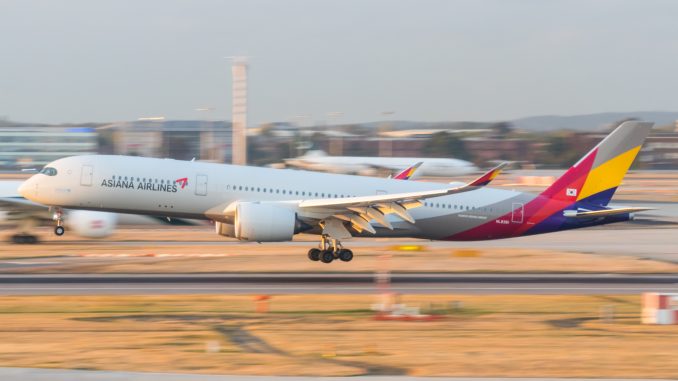
Hanjin KAL Group, the parent company of Korean Air, has announced plans to acquire Asiana Airlines, its largest competitor.
The Group says Korean Air itself would to acquire Asiana Airlines for 1.8 trillion Won (US $1.6 billion). It will issue new shares in early 2021 to secure 2.5 trillion Won in capital for the deal.
Asiana Airlines has been struggling financially even before the Coronavirus crisis. In November 2019, the airline found a new major investor with Hyundai Development. However, Hyundai demanded a re-negotiation of the deal’s conditions due to the ongoing pandemic and resulting losses at Asiana Airlines. It pulled out as an investor in September this year.
South Korea’s state-owned Korea Development Bank (KDB) stepped in to save Asiana with funding amounting to 2.4 trillion Won (US $2.17 billion). Now, the bank will give an 800 billion Won (US $722 million) investment to Hanjin KAL, through a purchase of new shares. The money will then be used by the group’s subsidiary Korean Air for the acquisition of Asiana Airlines. KDB will therefore become a shareholder of Hanjin KAL, not of Korean Air, which will exercise the purchase of its competitor.
Hanjin says this deal is intended to stabilize South Korean aviation, which is suffering under the Covid-19 pandemic. However, this acquisition would make Korean Air a monopoly in South Korean aviation. The group claims this deal will “ensure job security for employees at both airlines“. It goes on to say that this would put Korean Air on the top ten list of the world’s largest airline companies.
Korean Air has not yet provided any details on how plans to restructure Asiana Airlines. It was not immediately clear whether the two companies would entirely merge their businesses together or continue to operate under two separate brandings. However, a press release issued by Hanjin indicates a potential merger to create one single ‘full-service’ carrier for the whole country.

Jakob Wert is an aviation journalist from Germany. He built up the website IFN.news and is the Editor-In-Chief of International Flight Network.



